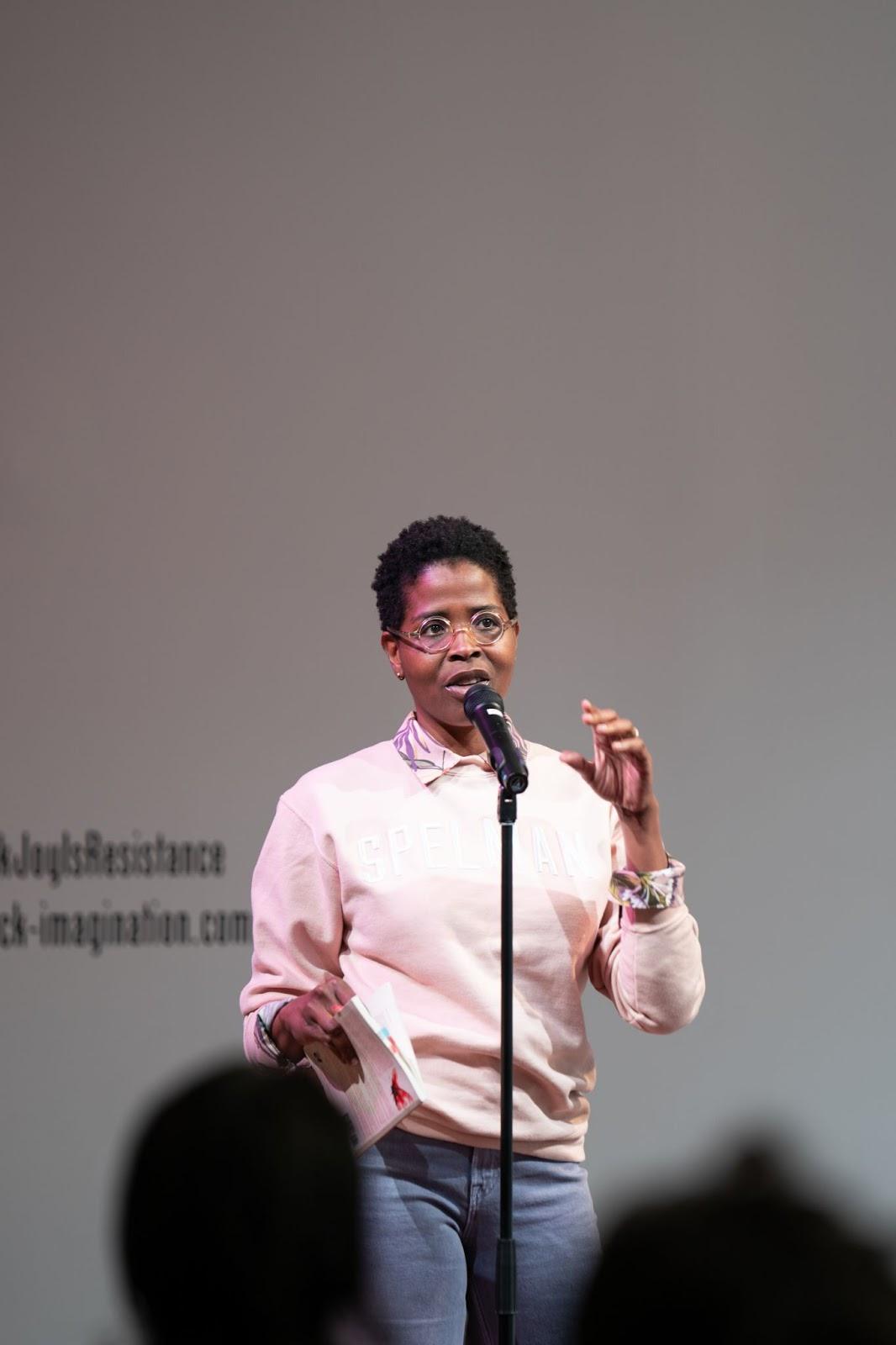“It’s important to align yourself with publications that align to your values as a writer and supports the kind of writing and writers you want to see represented.”
Do you remember your first rejection? How did you feel about it? Looking back, is there anything you learned from that experience?
I don’t remember my first rejection and maybe that is the lesson. We think it is a big deal in the moment, but it’s not. Especially if you continue to write and send your work out for publication on a regular basis, the rewards will outweigh the rejections.
What was the first piece you got published? How did you celebrate? Also, what does your process look like for researching where to submit your work? (do you browse or just submit to anyone with subs open regardless?)
One (or maybe two) of my poems were published in a publication for high school students. I’m not sure that I did anything to celebrate. But I do remember feeling accomplished, feeling excited that my writing was in print for thousands of people to see and read.
As for researching, I often follow where my contemporaries publish, especially if there is similarity in our writing styles, approaches, and point of view.
For a short piece like a story or a poem, how many places do you submit it to at a time? Do you keep track of your submissions? What does your editorial process look like before you hit submit?
I let a poem sit for some time before I send it out—and that is usually a year. Within that year, I will copyedit and revise the poem so that poem arrives at its intended truth. When I’m ready to send it out into the world, I may submit to two or three places at a time. I keep a “Current Submissions” file and I make sure the filename has the name of the publication in it. Poems that are accepted, I move to the “Accepted” file.
To be honest, in the past 5-7 years, I have been approached by editors and guest editors who know my work, so that eliminates a lot of the anxiety of whether or not my work with be accepted. Also this allows me to just focus on the process of writing and having work available so if my work is solicited, I have something to offer.
What type of writer are you when it comes to submitting your work: Do you hold on to a piece for a long time and then have to give yourself a pep talk (if yes, please share) or do you subscribe to a more fuck it hit submit right away approach? If your piece gets rejected, are you one to power through and move on to the next publication or do you sit with it a little longer and try to figure out where you might’ve gone wrong?
I treat rejection as par for the course. As part of the profession. And I believe that the work will find a home at some point. I particularly like it when pieces are accepted and editors want to work with me to tighten it up—they offer suggestions that can release the writing’s potential in ways that I could not see on my own. A good editor can bring out your genius and teach you how to refine your skills to better listen for what the poem wants to be.
Is there a rejection letter that stands out in your mind? Something particularly harsh or intense? Or maybe even comical?
This is my Facebook post from August 16, 2010:
Even though it's a rejection, it makes me smile. The Editors from The New Yorker write: Dear Arisa White, Thank you for giving us the opportunity to consider your work. It is fiercely observant, brave and delicate. Much as we admire it, we regret that we are unable to carry it in the magazine.
Warmest regards,
The Editors
Here are my top three comments from my friends:
Whoa! That is awesome! A personal rejection from the New Yorker rox.
Awesome, lady! Do your thing!
to be honest, the new yorker is only a name brand, and id not relevant in anybody's life that i know. i know your work and it is really too good for them....
What publication or magazine would you love to see yourself in someday? Or, if you have already been published in your dream pub, tell us about the experience.
I would want to write a piece for Teen Vogue. Adolescence is such an important and invaluable time in our development and having lived through some decades, I can offer insight to a younger generation that may help them along in their journey. I often receive thank-you letters from high school students and (new) young adults, which made me realized that my writing, and therefore my point of view, has a particular appeal to this demographic.
Is being published all it’s cracked up to be? What is your advice for writers who are working on getting published?
It’s always exciting to get a piece published. However, over the years, I learned not to tie my importance and value as a writer based on being published. I’ve focused on the writing and then finding a home for the work that best fits the audience I’m writing for, and maybe even about. It’s important to align yourself with publications that align to your values as a writer and supports the kind of writing and writers you want to see represented.
Okay, you are really hungry and in front of a sub shop. What is your all time favorite sandwich order?
I’m reminded of my favorite sandwich shop called Ike’s in Oakland, California—and I would always order the Paul Reubens: pastrami, purple slaw, French dressing, Swiss cheese, tomatoes, and lettuce and they added this secret sauce called “Dirty Sauce”! It was the “Dirty Sauce” that made a traditional Reuben into something unbelievable mouthwatering.
If not at Ike’s, my all-time favorite is a BLT with avocado if they have avocado as an add-on.


